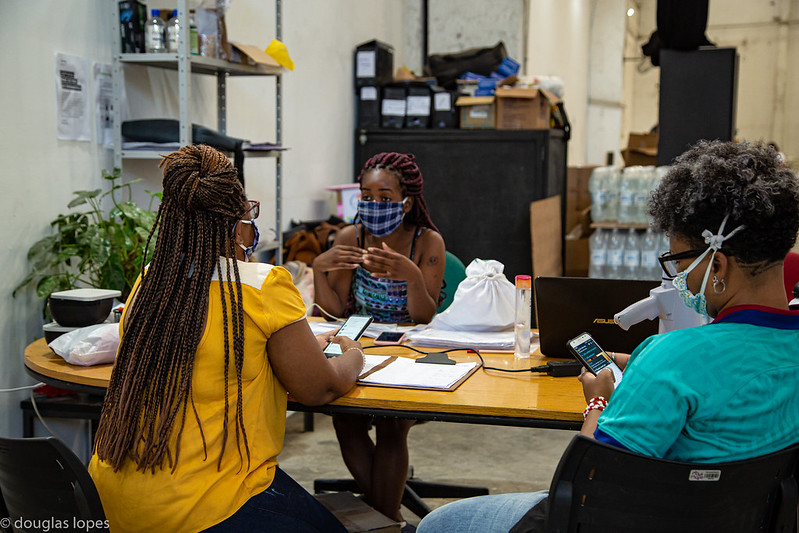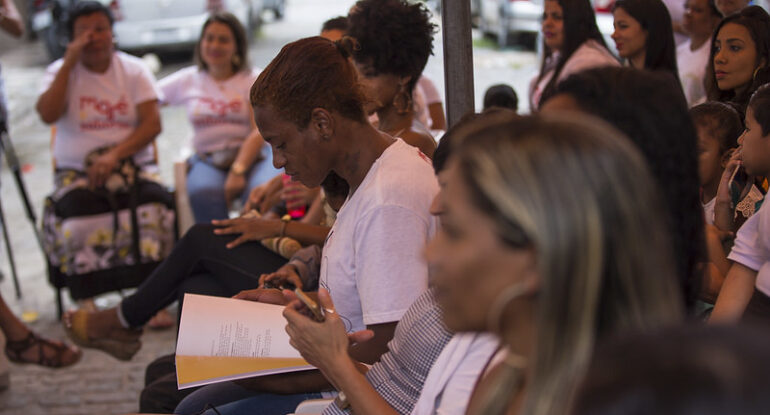Practical and ethical challenges of international fieldwork during a pandemic
* by Cathy McIlwaine and Moniza Rizzini Ansari
The effects of COVID-19 are reverberating throughout the academic world of research and teaching. While universities everywhere switch to various models of online delivery with an accompanying array of support materials being shared, less has been said about research in international settings. Certainly, there has been UKRI funding channelled to work on COVID-related issues in poorer countries of the world through the Global Challenges Research Fund and/or the Newton Fund among others. Furthermore, there has been some attention paid to international collaborations in general, or on how to re-think methodologies when face-to-face research is not possible. While these are valuable, little has been said about the role of ethics within international research collaborations especially in relation to field work.
How can international field research be conducted during a pandemic?
With travelling and face-to-face collective activities restricted, many international research projects involving field work have been severely disrupted. Many underprivileged communities overseas who are the subjects of many of these projects are no longer accessible for researchers. The risks of travelling and working in these communities have, understandably and correctly, become too high. Yet these communities are also facing health risks, high COVID incidence rates and lockdowns. There is an irony here given that many international researchers often claim to be offering support to local communities by investigating issues and potentially suggesting solutions. Yet for many, projects are on-hold, being re-designed, or being re-purposed altogether.
Therefore, we are not alone in grappling with how we continue with our British Academy and GCRF-funded project, “Resisting violence, creating dignity: negotiating Violence Against Women and Girls (VAWG) through community history-making in Rio de Janeiro”. With Brazil and the UK severely affected by the pandemic, we have been re-negotiating how to conduct our fieldwork in the favela community of Maré in Rio de Janeiro with our NGO partners, Redes da Maré. Initially, the fieldwork was understandably put on hold as our partners focused on the emergency situation in the community, providing food baskets and personal hygiene goods, face masks and running a catering facility to provide hot food. During this time, no research was undertaken besides some online meetings around timetables and funding.

Renegotiating fieldwork through co-production with international partners
These meetings showed us that our co-produced methodological design stood us in greater stead than many others in similar positions with more ‘traditional’ frameworks revolving around ‘sending people to the field’. In our project, we are using co-production to refer to a collaborative and participatory approach to knowledge production with marginal communities in the global South where the research is designed and conducted with local organisations and community members in ways that actively challenge an extractive approach by foreign researchers.[i]
This was our second project working with a team of researchers from People’s Palace Projects in London and Redes da Maré and the Federal University of Rio de Janeiro in Rio de Janeiro on Violence Against Women and Girls. While the first project was successful in giving a high level of autonomy to our Brazilian partners, the second actively aimed to develop a more co-produced approach. With the onset of the pandemic, our initial reaction was apprehension that this would be more difficult. Yet, we soon realised that in many ways, it was the reverse. Indeed, it transpired that our project was able to advance with relatively minor adjustments to the original plans.

Why and how has co-production enabled field research in Rio de Janeiro?
There are several reasons why we were able to continue with the field research despite the pandemic. First and foremost, is the co-production revolving around knowledge creation and the collaborative research process that involves a mutually beneficial process rather than one where the UK-based researchers impose a method of working on the partners in Rio de Janeiro. The horizontal mode of practice means that the project partner institutions have autonomy to decide their own order of activities, timetable, and safety measures. They are the ones who can adequately calculate their steps and priorities during times of great risk based on local knowledge. They can also respond to local challenges much more effectively than distant researchers. None of our local partners, Redes da Maré or the Federal University of Rio de Janeiro, need to ‘go to the field’ to carry out research given that they are based in the city and in the community, and even our London-based partners, People’s Palace Projects, have a local organisation, Casa Rio that facilitates and liaises transnationally. Indeed, as soon as the critical lockdown period in the city was over, the team from Redes da Maré were keen to move ahead with the research.
Second, although disastrous and lamentable, the COVID-19 outbreak and its effect on our locus of research has been incorporated into the project rather than circumvented. As has been widely reported, the nature of gender-based violence against women and girls has transformed and incidence increased by new layers of complexity and a new sense of critical priorities. Rather than equalise social inequalities, the pandemic has revealed the injustices that produce territories of poverty and violence. Likewise, local strategies of resistance and resilience have been transformed and, despite the need for great care and isolation in the community, collective and solidarity initiatives have been quickly built, especially by women. Of course, the nature of our project on violence against women and community resilience lends itself to re-purposing and embedding issues around COVID-19 into the research process.
However, the co-production dimension has facilitated this. Not only were we working closely with a local team of researchers based in the community, but we also co-designed interview schedules via two Zoom workshops with women from the community where, inevitably, the implications of COVID emerged as crucially important and were included in the research questions. This flexibility continues as we progress; we have weekly Zoom meetings with the team in the community to check that they are safe and what support they need. One of these meetings resulted in the provision of additional psychological support through de-brief sessions for the field researchers arranged by our partner, Prof Miriam Krenzinger at the Federal University if Rio de Janeiro.
Co-production, ethics and local financial sustainability
The challenges generated by COVID-19 also reveal a deeper set of ethical problems inherent to empirical social research that are often overlooked. Fieldwork, particularly in cases of international exchanges, is permeated by layers of sensitivities and relations of power between researchers and their research subjects. In a global North-South exchange, these layers are problematic and often re-enact well-known colonial and imperialist logics, i.e. often mirroring expeditions to exotic lands faraway, turning overseas lands and peoples into social, political, legal and scientific laboratories. Whether deliberate or not, the effects are equally oppressive and, in fact, sustained awareness of such power dynamics must be continually reflected on in order to properly circumvent them.
Also, and very significantly, by not suspending the project’s activities, we have been able to support the local partners who rely on the financial income resulting from our project. In times of crisis, poverty and unemployment intensify in unprecedented ways with communities such as Maré being disproportionately affected. The research funding streams circulating globally, while welcome, have often been unable to avoid extension of deadlines, adjustments to previous commitments, and re-purposing of funds to other activities, outputs, and impacts. According to our local partners, from their standpoint, many international funding schemes previously available and being implemented at the time of the pandemic outbreak were put on hold. Yet, and although we have been awarded a no-cost extension, we have been able to continue paying our local partners who continue to produce exceptionally high-quality research during such a difficult time. Of course, there are delays and shifts in timetables and changes in staff and focus. But the flexibility inherent within our co-produced approach has paid off in the face of such an unexpected challenge in the form of a pandemic. No approach is perfect, but we have been able to function
The position of the empirical field researcher is not a comfortable one, especially when they are based overseas. Of course, there are many merits in the initiative of developing social research based on empirical with local communities affected by social adversities, but the paradoxes as to the main beneficiaries of such investigations are often inescapable. Being attentive as well as acknowledging such benefits form an important ethical posture when designing a project, seeking funds and implementing a research project abroad.
*****
[i] Co-production can also be used in designing services with local communities as well as knowledge production. Bell, David M. & Pahl, Kate (2018) Co-production: towards a utopian approach, International Journal of Social Research Methodology, 21:1, 105-117; Mitlin, Diana and Bartlett, Sheridan, 2018. ‘Editorial: Co-production – key ideas’, Environment and Urbanization, 30:2, 355–366.
